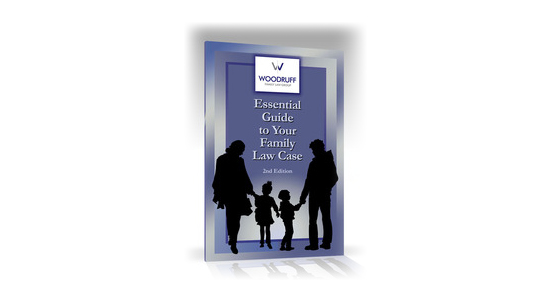Property Division – Equitable Distribution
One of the most important issues dealt with by experienced family law and divorce attorneys across the country, and especially in the Piedmont Triad, is the division of property (also known as equitable distribution).
Following a lengthy marriage, it is likely that the parties have accumulated a large amount of marital property, such as bank accounts, investment accounts, furnishings, cars, and property. These are items that, following a divorce, have to be divided between the two parties.
In a divorce case, North Carolina presumes equitable distribution. That means that all marital property, both debts and assets, are divided equally between both parties. The default rule, essentially, splits everything in half, 50/50. This can be altered in at least two ways: (1) If the parties signed a premarital agreement prior to entering into the marriage (such an agreement allows the parties to specify how they want their property divided should they later divorce.) (2) There are 14 factors for an unequal division for the court to consider.
If the parties do not have a premarital agreement in place, as is often the case, their property will need to be divided, either as decided by agreement, in mediation, or by court order. One important piece to the division of property includes the required inventory affidavits of marital property. These are known as ED Affidavits. If there is a claim for equitable distribution, the parties will each have to fill out one of these affidavits. The information on these affidavits is extensive and every item is valued as of the date of separation. It is important to fill out these affidavits accurately and completely, with the help of your attorney, to make sure that the property, including both assets and debts, is divided equally.
These ED Affidavits are useful in coming to an agreement between the parties as to the value of the items listed in the affidavit. This is why it is important to have documentation showing the value of the items as of the date of separation. The other party has a hard time arguing about the value of a bank account when you provide the statement showing the balance at the date of separation. Negotiations between the two parties, with the assistance of their attorneys, can lead to compromises that allow for the distribution of the property.
Another important aspect of property division focuses on pensions and retirement accounts. Marital property includes anything that is placed in such accounts, for example 401(k) s, during the marriage. Therefore, if one spouse has contributed over the 20 year marriage to his or her 401(k), the other spouse is entitled to half of that money presumptively.
Having a Qualified Domestic Relations Order (QDRO) entered by the court allows the second spouse to receive money directly from the administrator of the retirement plan, once the other spouse becomes eligible to receive payments. This simplifies the process and ensures that the second spouse receives the payments they are entitled to. It is important to have the assistance of an attorney to ensure that the terms of the QDRO are equitable and the QDRO itself is a valid and binding document.
To learn more about any of the previously mentioned areas under the broad category of property division, select the appropriate link below.
- Equitable Distribution
- Required Inventory Affidavits of Marital Property
- Qualified Domestic Relations Order (QDRO)
Spousal Support
One common issue that comes up frequently in family law and divorce cases across North Carolina is the issue of spousal support. As you can probably tell given its name, spousal support involves payments made from one spouse to the other following a separation or divorce.
For example, with hypothetical names, Mike Thompson and Sharon Thompson of Greensboro, North Carolina have decided to file for a divorce. Sharon moves out of the marital residence in order to be legally separated from him so as to file for divorce. However, Sharon is the breadwinner in the family and makes significantly more than Mike. If the court determines that Mike was dependent on Sharon, he may be entitled to either alimony or post separation support from Sharon.
As shown in the hypothetical example, spousal support is only awarded by the court when there is a dependent relationship between the two spouses. This means that one spouse is the dependent spouse, and the other spouse is known as the supporting spouse. A dependent spouse is one who is dependent on the other spouse for support. A supporting spouse is one that has been providing support to the other spouse.
Spousal support is a general term that can be split into two different categories: alimony and post separation support. The major difference between alimony and post separation support is the time frame. Alimony is more of a long-term or rehabilitative form of spousal support. Alimony can only be awarded once either party has filed for divorce.
Post separation support, on the other hand, is a temporary, short-term form of spousal support.
There are some technical requirements to make sure your claim for alimony or post separation support is viable and can be heard by the court. Your case for alimony or post separation support must be pending before the court prior to an order granting absolute divorce. If you do not have a pending case before the absolute divorce is granted, you lose the claim for both alimony and post separation support. PLEASE SEEK ADVICE FROM A FAMILY LAWYER BEFORE FILING FOR DIVORCE IF YOU SEEK SPOUSAL SUPPORT. THIS IS CRITICAL!!!!!!!!!!!
This technical requirement regarding timing is why it is important to have an experienced family law and divorce attorney at your side throughout this process. There are rules that must be followed, or you can lose your right to have certain claims, such as those for alimony or post separation support, heard by the court. Having an experienced attorney ensures that you do not jeopardize your rights due to a technicality.
For further, more specific and detailed information about both alimony and post separation support, select the link provided below for either type of spousal support. If you wish to file a claim for either alimony or post separation support, along with many other legal family issues, contact our office to meet with an experienced family law and divorce attorney.









